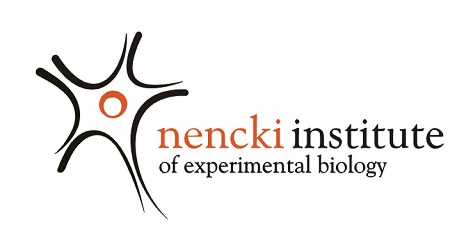 Speaker: Michał Dąbrowski, PhD (Nencki Institute, Poland)
Speaker: Michał Dąbrowski, PhD (Nencki Institute, Poland)
Talk: Analysis of global transcriptional regulation in brain starting from genomic and expression data
Time: April 11, 2014, 9:00
Venue: Intercollegiate Faculty of Biotechnology of UG&MUG, Kładki 24, Gdańsk, lecture hall B
Category: Invited seminar
Physician by education, PhD in experimental molecular biology, about 10 years’ experience in bioinformatics, mainly analysis of global gene expression and regulatory genomics data.
Employment history (main places): Nencki Institute, Szpital Specjalistyczny w Kościerzynie, Katholieke Universiteit Leuven. Currently: Nencki Institute, Laboratory of Molecular Neurobiology, head: prof. Bożena Kamińska.
Key scientific achievements: demonstration of cell-autonomous regulation of differentiation of hippocampal neurons, identification of transcriptional regulators common to stroke and seizures, demonstration that matrix attachment region binding protein modulates transcriptional activation, identification of key proteins stimulating host microglia to promote tumor growth, creation of the first regulatory genomics database for the rat.
Ongoing projects: a bioinformatics project of creation of a portal with tools for regulatory genomics, and a (starting) experimental project utilizing very high-throughput next generation sequencing to identify TFs involved in microglia reeducation by glioma.
Speaker: dr Maja Firczuk
Talk: "Academic basic research vs. big pharma R&D- similarities and differences based on my career transition from postdoc to early drug discovery at GlaxoSmithKline"
Time: 7 may 2021, 9:00 am.
Venue: Online in the "IFB seminars" group of MS Teams. Group password: ypidr3d.
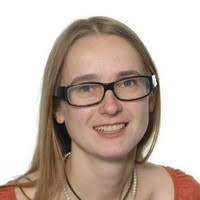
I have completed all my higher education at MWB in Gdansk. I have gained an extensive expertise in biochemistry during my PhD on Hsp70 protein systems, in the group of prof. Marszalek. In 2007 I have started postdoctoral research in systems biology of eukaryotic mRNA translation pathway, first at University on Manchester then at Warwick University. In 2018 I decided to have a career change and moved to work as a biochemist in early drug discovery at GSK.
In my talk I want to share learnings form my career journey and give you an overview of drug discovery process.
 Speaker: Vladimir Teif, PhD (German Cancer Research Center DKFZ and BioQuant, Heidelberg)
Speaker: Vladimir Teif, PhD (German Cancer Research Center DKFZ and BioQuant, Heidelberg)
Talk: Deciphering the rules of epigenetic regulation during stem cell development
Time: June 27, 2014, 10:00
Venue: Intercollegiate Faculty of Biotechnology of UG&MUG, Kładki 24, Gdańsk, lecture hall B
Category: Invited seminar
Speaker: prof. Neelika Malavige (Department of Immunology and Molecular Medicine, Faculty of Medical Sciences, University of Sri Jayewardenepura, Sri Lanka)
Talk: „Immunopathogensis of dengue; lessons for COVID-19?”
Time: 12 March 2021, 9:00 am
Venue: Online in the "IFB seminars" group of MS Teams. Group password: ypidr3d.
 Neelika Malavige is a Professor and Head of the Department of Immunology and Molecular Medicine at University of Sri Jayewardenepura, a Director of Centre for Dengue Research and an academic visitor at the MRC Human Immunology Unit, University of Oxford. She is also a member of Executive Committee of the International Society of Infectious Diseases.
Neelika Malavige is a Professor and Head of the Department of Immunology and Molecular Medicine at University of Sri Jayewardenepura, a Director of Centre for Dengue Research and an academic visitor at the MRC Human Immunology Unit, University of Oxford. She is also a member of Executive Committee of the International Society of Infectious Diseases.
Neelika has obtained medical training and qualifications through University of Colombo, Sri Lanka, Royal College of Physicians, UK and European Academy of Allergology and Clinical Immunology. She did her PhD at the University of Oxford, investigating immune responses to Varicella Zoster virus, having received a Commonwealth Scholarship. She is currently both a scientist and a practising clinician with interest in infectious diseases and allergies. Neelika has obtained research funding of around $ 2 mln and with that support she set up and developed the Centre for Dengue Research at the University of Sri Jayewardenepura.
Neelika’s current research interest involve immune responses to Dengue virus and biomarker identification; she is also running clinical trials to reduce vascular leak in severe disease. With the onset of the COVID-19 pandemic, Neelika and her team have been also investigating humoral and cellular responses to SARS-CoV2 and sequencing the viral strains.
She has published extensively on Dengue, VZV and now also on COVID-19 in prestigious journals, including Nature Communications, Scientific Reports and PLoS NeglectedTropical Diseases. She has been awarded countless excellence research awards and multiple awards for quality in research supervision. She has been involved in science popularisation, has been proclaimed a “role model” for Women in STEM and has recently won the title of “The most inspiring woman of the year” in Sri Lanka.
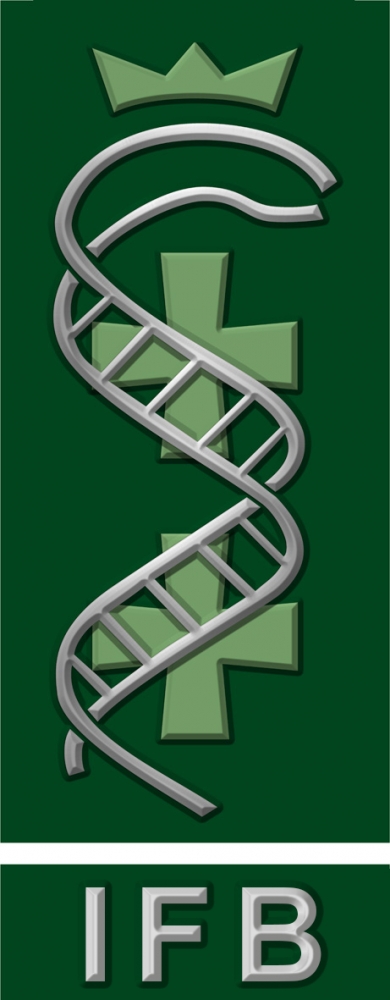 Speaker: Binay Chaubey, PhD (Intercollegiate Faculty of Biotechnology of University of Gdansk and Medical University of Gdansk, Poland)
Speaker: Binay Chaubey, PhD (Intercollegiate Faculty of Biotechnology of University of Gdansk and Medical University of Gdansk, Poland)
Talk: Intervention of HIV replication using anti-sense approach
Time: October 31, 2014, 9:00
Venue: Intercollegiate Faculty of Biotechnology of UG&MUG, Kładki 24, Gdańsk, Lecture Hall B
Category: Lecture
Speaker: Dr Adam Ritchie (Jenner Institute, Nuffield Department of Medicine, Wellcome Trust Centre for Human Genetics, University of Oxford)
Talk: Oxford-AstraZeneca Covid-19 vaccine - questions and answers session
Time: 29 January 2021, 9:00 am
Venue: Online in the "IFB seminars" group of MS Teams. Group password: ypidr3d.
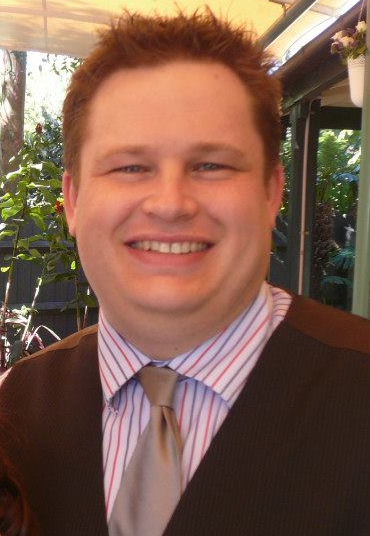 Dr Ritchie completed his Bachelor of Science degree in Medical Microbiology and Immunology (2001) and PhD in Immunology (2005), both at the University of New South Wales in Australia. His doctoral research involved investigation of modulation of immune responses by Pseudomonas aeruginosa. After his PhD, he moved to the University of Oxford, working as a postdoctoral researcher in infection risk of blood products, which focused on malaria and variant Creutzfeldt–Jakob disease. Then, he followed with a post-doctoral research position in HIV/AIDS immunology at the Weatherall Institute for Molecular Medicine, University of Oxford as part of the Centre for HIV/AIDS Vaccine Immunology (CHAVI) consortium (2008-2012). During the time he coordinated the CHAVI002 study into individuals resistant to HIV infection in cohorts in the UK and Uganda.
Dr Ritchie completed his Bachelor of Science degree in Medical Microbiology and Immunology (2001) and PhD in Immunology (2005), both at the University of New South Wales in Australia. His doctoral research involved investigation of modulation of immune responses by Pseudomonas aeruginosa. After his PhD, he moved to the University of Oxford, working as a postdoctoral researcher in infection risk of blood products, which focused on malaria and variant Creutzfeldt–Jakob disease. Then, he followed with a post-doctoral research position in HIV/AIDS immunology at the Weatherall Institute for Molecular Medicine, University of Oxford as part of the Centre for HIV/AIDS Vaccine Immunology (CHAVI) consortium (2008-2012). During the time he coordinated the CHAVI002 study into individuals resistant to HIV infection in cohorts in the UK and Uganda.
From 2011 to 2017 Dr Ritchie was the Lecturer in Science and Public Policy at the Blavatnik School of Government, a new department at Oxford that he helped establish. Here he taught public policy students and policy makers how to work with scientific evidence, including preparing for and responding to pandemics.
Currently, he is working at the Jenner Institute, University of Oxford as a Senior Project Manager in Vaccine Development and is part of the Oxford COVID Vaccine Trial Group. Initially working on Rabies vaccine from 2017, he set up and manages phase I clinical trials for this vaccine in the UK and Tanzania. In 2020 his role changed due to the pandemic; he was instrumental in developing and delivering the manufacturing process for the ChAdOx1 nCoV-19 vaccine. This included setting up the Manufacturing consortium now producing the vaccine under licence with AstraZeneca, obtaining a UK government commitment of £65 million support for manufacturing, and managing £15 million of that budget.
Dr Ritchie is also actively involved in multiple non-research roles at Oxford, including as the Senior Admissions Adviser for Blavatnik School of Government, and as a Lecturer in Human Science at St Catherine’s College. He holds a Post-Graduate Diploma in Learning and Teaching in Higher Education at the University of Oxford and the Higher Education Academy (2013). He is a Senior fellow of the Higher Education Academy, and received the St Bonaventure University Medal of Honor (2012) and University of Oxford Teaching Excellence Award (2013) for his contributions to education.
Dr Ritchie has co-authored work published by Journal of Virology, Vaccine, Journal of Clinical Investigation, Retrovirology, Infection and Immunity, etc. His most recent work focusing on the COVID19 vaccine resulted in multiple papers published in The Lancet and Nature Medicine.
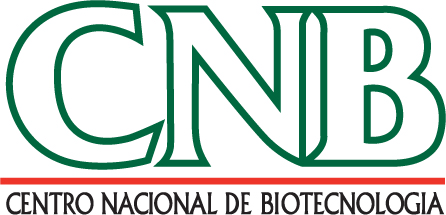 Speaker: Jose Maria Valpuesta, PhD (Centro Nacional de Biotecnología, Consejo Superior de Investigaciones Científicas, Spain)
Speaker: Jose Maria Valpuesta, PhD (Centro Nacional de Biotecnología, Consejo Superior de Investigaciones Científicas, Spain)
Talk: The protein folding pathway: a coordinated network of molecular machines
Time: October 17, 2014, 9:00
Venue: Intercollegiate Faculty of Biotechnology of UG&MUG, Kładki 24, Gdańsk, Lecture Hall B
Category: Invited seminar
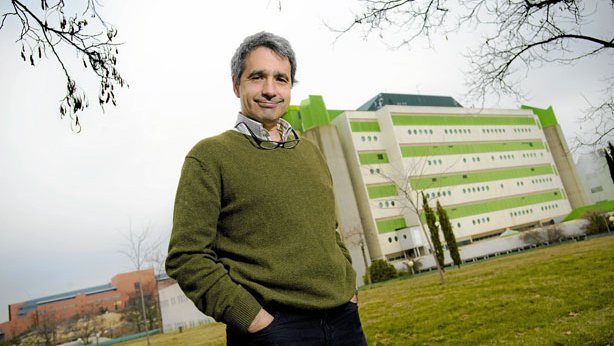 José María Valpuesta obtained his Ph.D. degree in biochemistry at the University of the Basque Country, Spain in 1985. Later he worked at the Centro de Biología Molecular (CSIC/Madrid, Spain). In 2003 he obtained the professor tile and started working at the Centro Nacional de Biotecnología. In 2006-7 held position of Vice-director and 2007-13 director of Centro Nacional de Biotecnología, one of the most important centers of molecular biology in Spain. Between 2005 and 2009 prof. Valpuesta held position of President of the Spanish Microscopy Society. Currently he is head of the Macromolecular Structure Department of the National Centre of Biotechnology.
José María Valpuesta obtained his Ph.D. degree in biochemistry at the University of the Basque Country, Spain in 1985. Later he worked at the Centro de Biología Molecular (CSIC/Madrid, Spain). In 2003 he obtained the professor tile and started working at the Centro Nacional de Biotecnología. In 2006-7 held position of Vice-director and 2007-13 director of Centro Nacional de Biotecnología, one of the most important centers of molecular biology in Spain. Between 2005 and 2009 prof. Valpuesta held position of President of the Spanish Microscopy Society. Currently he is head of the Macromolecular Structure Department of the National Centre of Biotechnology.
As the researcher prof. Valpuesta is co-author of 137 indexed papers (among others in Nature, Science, Nat Struct. Mol. Biol., Nat Cell Biol, Mol. Cell, PNAS USA, EMBO J.), in the field of membrane structure, protein folding, molecular chaperones, macromolecular complexes and electron microscopy. Citation Hirsch index: 42 (~5700 citations). Author of 1 book and 5 chapters in collective books. His achievements were honored by awards granted by Spanish Ministry of Education, Bruker Prize of the Biophysical Spanish Society, European Microscopy Society. In addition, prof. Valpuesta is the member of “Faculty of 1000” and “Academia Europaea”. He worked as reviewer for National Science Foundation (USA), Israel Science Foundation, Human Frontiers Science Foundation, Cancer Research UK, Wellcome Trust Foundation, Cancer Research UK, Argentinian Science Foundation (FONDECIT) and several Spanish Funding agencies.
Prof. Valpuesta as teacher gives lectures about Biomedicine, Molecular and Cell Biology and Biophysics at Universidad Autónoma de Madrid. Moreover, occasionally he gives lectures at University of Crete (Greece), Lisbon and Porto (Portugal), Santiago (Chile). Until 1995 he was supervisor of 10 postdocks, 15 Ph.D students and 6 Master students.
During last 10 years prof. Valpuesta has helped to establish cryoelectron microscopy at the Centro Nacional de Biotecnología (CNB), and have contributed to forming a core of seven groups at the institute that use this and other techniques, complemented by image processing tools, to structurally characterize a large variety of biological specimens. This community of electron microscopists is perhaps unique in the world and certainly in Spain, where his group is a reference. The most influential part of his work deals with the structural and functional characterization of various chaperones, which has helped to structurally confirm the existence of a network of interactions between different chaperones that make the protein folding pathway more efficient. He has published more than 60 papers over the last 10 years, some in such journals as Science, Mol. Cell, Nat Cell Biol, Nat Struct Mol Biol, J Exp Med, PNAS USA, and EMBO J. Seven of these papers were selected by the “Faculty of 1000”; his work has received more than 2500 citations since 2009.
He also pioneered in Spain the use of single-molecule techniques such as optical tweezers, which have been used to study the forces involved in the function of different protein and nucleic acid molecules.
Speaker: dr Adam Kłosin (Max Planck Institute of Molecular Cell Biology and Genetics, Dresden, Germany)
Talk: Regulation of gene expression through biomolecular condensation
Time: 06 November 2020, 9:00 am
Venue: Online in the "IFB seminars" group of MS Teams. Group password: ypidr3d.
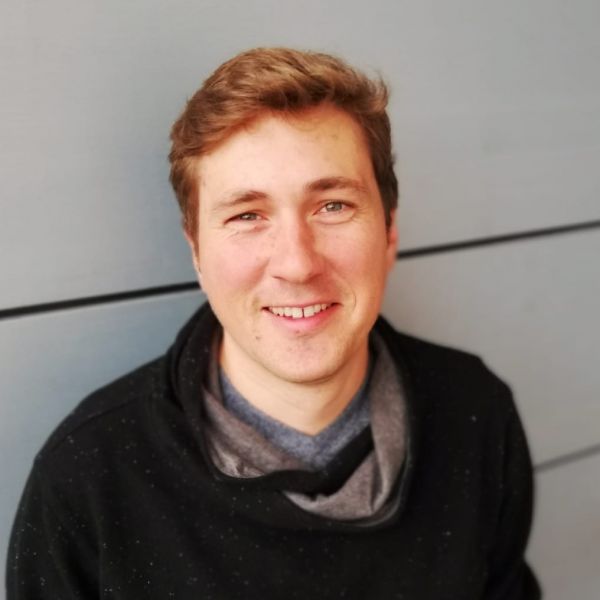 Adam Kłosin is a postdoctoral researcher and a Marie Skłodowska-Curie Fellow at the Max Planck Institute of Molecular Cell Biology and Genetics in Dresden, Germany. In 2016 he completed his PhD in the group of Ben Lehner at the Centre for Genomic Regulation in Barcelona where he studied mechanisms of epigenetic inheritance in Caenorhabditis elegans. He then moved to Dresden to train in the arts of biological phase separation in the group of Tony Hyman. In his research he applies biophysical methods to understand various aspects of gene regulation such as transcriptional initiation and control of protein expression variability. His most recent work demonstrates a very effective mechanism for noise reduction in mammalian cells based on compartmentalisation of a protein via liquid- liquid phase separation. He is currently investigating the role of disordered protein domains in regulating interactions with the DNA in the context of transcriptional initiation.
Adam Kłosin is a postdoctoral researcher and a Marie Skłodowska-Curie Fellow at the Max Planck Institute of Molecular Cell Biology and Genetics in Dresden, Germany. In 2016 he completed his PhD in the group of Ben Lehner at the Centre for Genomic Regulation in Barcelona where he studied mechanisms of epigenetic inheritance in Caenorhabditis elegans. He then moved to Dresden to train in the arts of biological phase separation in the group of Tony Hyman. In his research he applies biophysical methods to understand various aspects of gene regulation such as transcriptional initiation and control of protein expression variability. His most recent work demonstrates a very effective mechanism for noise reduction in mammalian cells based on compartmentalisation of a protein via liquid- liquid phase separation. He is currently investigating the role of disordered protein domains in regulating interactions with the DNA in the context of transcriptional initiation.
 Speaker: Agnieszka Bernat-Wójtowska, PhD (Intercollegiate Faculty of Biotechnology of University of Gdansk and Medical University of Gdansk, Poland)
Speaker: Agnieszka Bernat-Wójtowska, PhD (Intercollegiate Faculty of Biotechnology of University of Gdansk and Medical University of Gdansk, Poland)
Talk: Embryonic stem cells: tools, cure and more
Time: November 28, 2014, 9:00
Venue: Intercollegiate Faculty of Biotechnology of UG&MUG, Kładki 24, Gdańsk, lecture hall B
Category: Lecture
Speaker: dr Michał Mińczuk (MRC Mitochondrial Biology Unit, University of Cambridge)
Talk: Genome editing in mitochondria: past, present and future
Time: 06 March 2020, 9:00 am
Venue: Intercollegiate Faculty of Biotechnology, Abrahama 58, hall 042
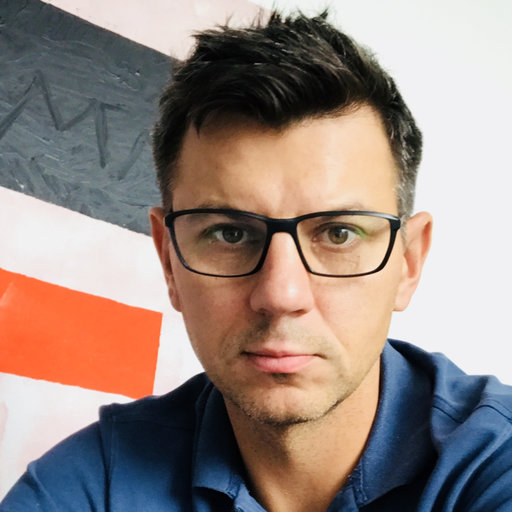 Mitochondria are essential for human life. They are complex, compartmentalised organelles that form a dynamic network throughout the cell, host crucial metabolic processes vital for energy provision, and are central to cell fate decisions. Mitochondria contain multiple copies of their own genome, the mtDNA, that encodes the core subunits of the oxidative phosphorylation system. Mutations in protein or RNA coding genes of mtDNA are the most frequent cause of mitochondrial disease. These disorders are currently incurable and effectively untreatable, with heterogeneous penetrance, presentation and prognosis. In most cases, mutant and wild-type mtDNAs coexist within a single cell, resulting in heteroplasmy. The selective elimination of mutant mtDNA, and consequent enrichment of wild-type mtDNA, can rescue pathological phenotypes in heteroplasmic cells. In our work, we have developed mitochondrially targeted zinc finger-nucleases (mtZFNs) for degradation of mutant mtDNA through site-specific DNA cleavage. We have successfully used mtZFNs to target and cleave mtDNA harbouring disease-associated point mutations or large-scale deletions in vitro. More recently, we exploited a unique mouse model that recapitulates common molecular features of heteroplasmic mtDNA disease in cardiac tissue: the m.5024C>T tRNAAla mouse. Through application of mtZFN delivered systemically by adeno-associated virus (AAV), we induced specific elimination of mutant mtDNA across the heart, coupled to a reversion of molecular and biochemical phenotypes. These recent findings constitute proof of principle that mtDNA heteroplasmy correction using programmable nucleases could provide a therapeutic route for heteroplasmic mitochondrial diseases of diverse genetic origin.
Mitochondria are essential for human life. They are complex, compartmentalised organelles that form a dynamic network throughout the cell, host crucial metabolic processes vital for energy provision, and are central to cell fate decisions. Mitochondria contain multiple copies of their own genome, the mtDNA, that encodes the core subunits of the oxidative phosphorylation system. Mutations in protein or RNA coding genes of mtDNA are the most frequent cause of mitochondrial disease. These disorders are currently incurable and effectively untreatable, with heterogeneous penetrance, presentation and prognosis. In most cases, mutant and wild-type mtDNAs coexist within a single cell, resulting in heteroplasmy. The selective elimination of mutant mtDNA, and consequent enrichment of wild-type mtDNA, can rescue pathological phenotypes in heteroplasmic cells. In our work, we have developed mitochondrially targeted zinc finger-nucleases (mtZFNs) for degradation of mutant mtDNA through site-specific DNA cleavage. We have successfully used mtZFNs to target and cleave mtDNA harbouring disease-associated point mutations or large-scale deletions in vitro. More recently, we exploited a unique mouse model that recapitulates common molecular features of heteroplasmic mtDNA disease in cardiac tissue: the m.5024C>T tRNAAla mouse. Through application of mtZFN delivered systemically by adeno-associated virus (AAV), we induced specific elimination of mutant mtDNA across the heart, coupled to a reversion of molecular and biochemical phenotypes. These recent findings constitute proof of principle that mtDNA heteroplasmy correction using programmable nucleases could provide a therapeutic route for heteroplasmic mitochondrial diseases of diverse genetic origin.